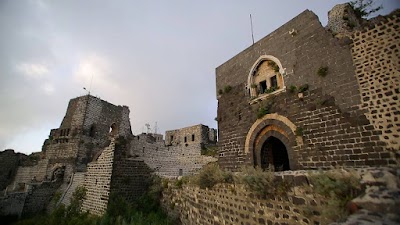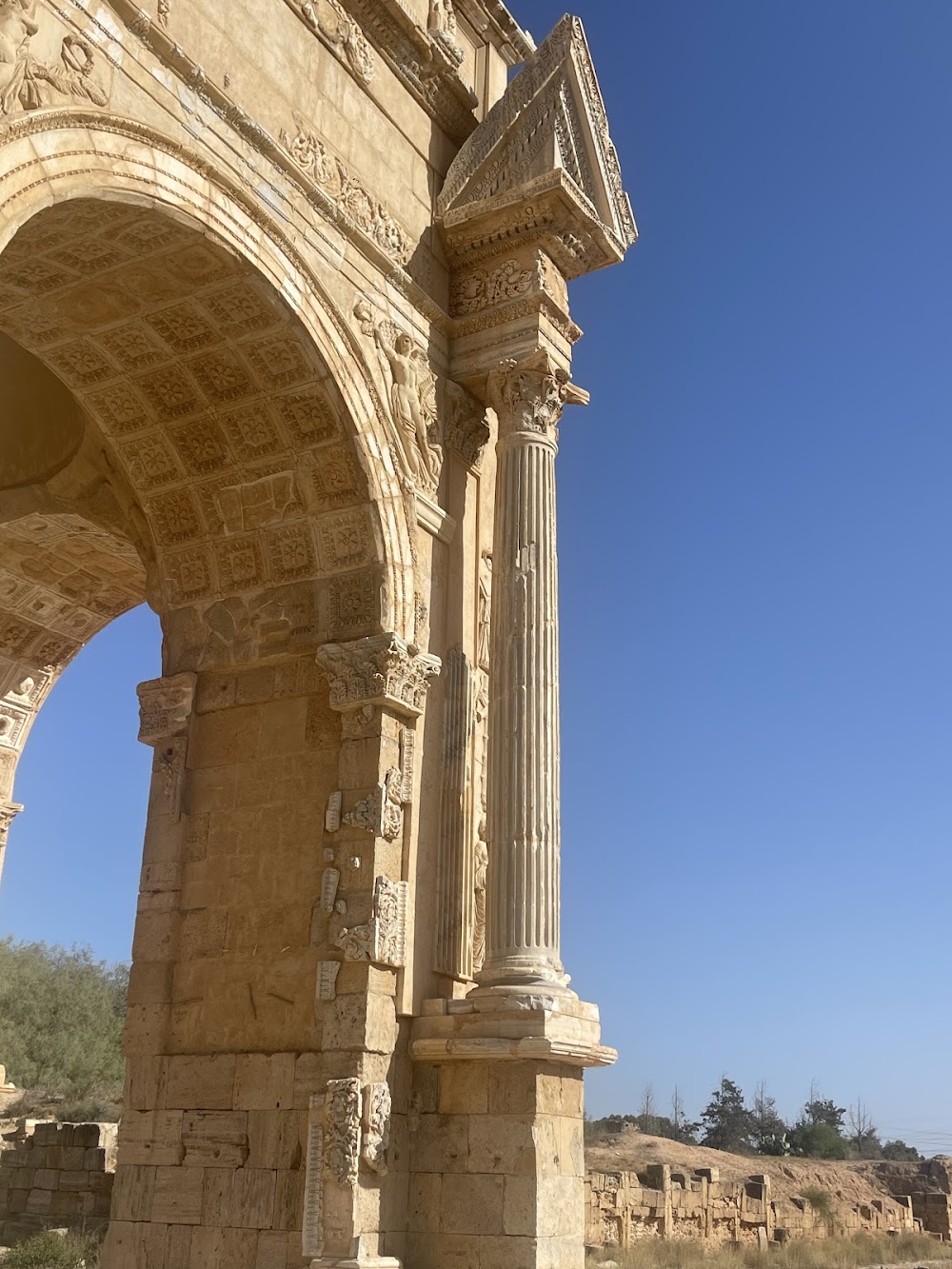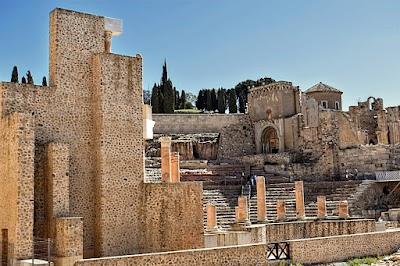Al-Murqub Castle (قلعة المرقب)
Overview
Al-Murqub Castle, a breathtaking historical gem, is perched majestically atop a hill in Murqub, Libya. This impressive fortress offers a captivating glimpse into the region’s rich history and architectural splendor, making it a must-visit for any traveler intrigued by ancient civilizations and their legacies.
Historical Significance
The castle dates back to the time when the Berber dynasties reigned supreme in North Africa. Initially constructed during the 12th century under the Almoravid dynasty, Al-Murqub Castle has undergone numerous renovations and expansions over the centuries, particularly by the Ottomans. Each ruler left a unique imprint on the fortress, resulting in a fascinating blend of architectural styles. The castle's imposing walls, built for defense, are complemented by intricate internal designs that reflect the artistic sensibilities of various historical periods.
Strategic Location
One of the most striking features of Al-Murqub Castle is its strategic location. Set on a high vantage point, the fortress offers expansive views of the surrounding landscape. Historically, this positioning allowed defenders to spot incoming invaders from miles away, making it a nearly impregnable stronghold. For modern visitors, this same vantage point provides stunning panoramas of the Libyan scenery, offering ample opportunities for photography enthusiasts to capture breathtaking vistas.
Exploring the Interior
Inside the castle, maze-like corridors and rooms reveal the daily life of those who inhabited its walls centuries ago. From grand halls used for diplomatic purposes and lavish feasts to humble quarters for soldiers and servants, each area tells a story of medieval life. Particularly intriguing are the remnants of ancient cisterns and storage rooms, showcasing the ingenuity of the castle's designers in ensuring self-sustainability during sieges.
Cultural Importance
Al-Murqub Castle isn't just about towering stone walls and historical architecture; it also holds significant cultural importance. Over the years, numerous artifacts, including pottery, coins, and weaponry, have been unearthed from the site, providing tangible connections to the past. Many of these artifacts are now displayed in local museums, offering enriching insights into the daily lives and trade practices of the castle’s former inhabitants.
Evocative Experiences
Visitors to Al-Murqub Castle are often struck by the sense of awe and mystery that envelops the site. Walking through the ancient stone arches, one can almost hear the echoes of the past—the clashing of swords, the bustle of courtyard markets, and solemn prayers whispered in the castle’s chapel. These evocative experiences are heightened by guided tours, available in multiple languages, providing deeper insights into the castle’s storied history and the broader historical contexts of the region.
Military Architecture
For those interested in medieval military architecture, Al-Murqub Castle is a prime case study in effective design. Its robust defensive features include thick walls, strategically placed lookout towers, and narrow, easily defendable passages. The castle also boasts a classic gatehouse, meticulously engineered for defenders to repel attackers with boiling oil or rocks—an impressive testament to the sophistication and strategic thinking of the castle’s medieval architects.
Legends and Folklore
Beyond its historical and architectural allure, Al-Murqub Castle is steeped in local folklore and legend. Stories of hidden treasures buried within its depths and ghostly apparitions roaming the halls by moonlight abound. While these tales remain unverified, they add a layer of mystique to the castle, captivating the imaginations of visitors young and old.
Exploring Murqub
A visit to Al-Murqub Castle is not complete without exploring the surrounding town of Murqub itself. The town boasts a variety of traditional shops and cafes where tourists can sample local delicacies and purchase handcrafted souvenirs. The warm hospitality of the Murqub residents enhances the experience, ensuring travelers leave with not just photographs but also heartfelt memories.
Travelers should note that the castle is accessible year-round, though the best times to visit are during the cooler months from November to March. Comfortable walking shoes are advisable due to the uneven terrain and the considerable amount of exploration on foot.
In conclusion, Al-Murqub Castle stands as a testament to the region's enduring historical significance and architectural prowess. Its captivating blend of history, culture, and scenic beauty provides an unforgettable experience for all who step through its ancient gates. Whether you are a history buff, an adventure seeker, or simply looking to immerse yourself in the rich tapestry of Libyan heritage, Al-Murqub Castle promises a journey back in time that will leave you spellbound.






